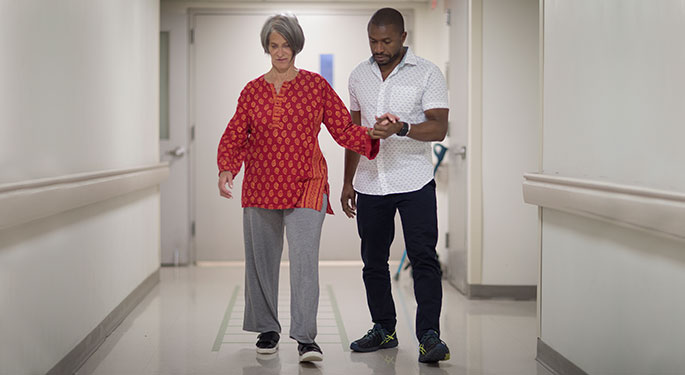Leveraging Mental Toughness to Enhance Performance in Physical Recovery
Wiki Article
Cognitive resilience is an crucial trait that can significantly enhance performance in athletic rehabilitation. Sportspeople often grapple with injuries that necessitate time away from their training, which can be both physically and emotionally difficult. Psychological toughness refers to the ability to remain robust and resilient in the face of adversity. It helps athletes manage the strain of injury recovery, stay focused on their goals, and maintain motivation throughout the healing process. By developing mental resilience, athletes can enhance their recovery experience and return to their discipline better prepared than before.

An key aspect of building mental resilience is setting realistic goals. When sportspeople are hurt, it is essential for them to have structured, realistic intentions during their healing. These milestones should be detailed, measurable, attainable, relevant, and deadline-driven (actionable) principles. For example, instead of saying “I plan to recover soonâ€, an athlete might set a goal like “I will follow my therapy routine three times weekly for four weeksâ€. This helps recovering individuals assess their progress and keep their concentration on what they can influence, reducing feelings of discouragement or despair.
Another key factor in building inner strength is maintaining a constructive mindset. Competitors should practice encouraging inner dialogue and mental imagery practices to foster a constructive mental environment. Positive self-talk involves replacing negative thoughts with affirming statements. For instance, instead of thinking “I can’t do thisâ€, an individual could tell themselves “Each day I’m improvingâ€. Mental rehearsal can also be effective; patients can imagine themselves performing well in their sport as they recover. These practices help build confidence and reinforce the belief that return to performance is possible.
Supportive relationships play a essential role in fostering emotional toughness during healing. Sportspeople should stay connected with encouraging friends, relatives, mentors, and healthcare providers who understand the demands of recovery. Open communication with these care team members allows recovering individuals to express their feelings, concerns, and frustrations. Additionally, sharing experiences with other injured athletes can provide a sense of shared understanding and connection that makes the path easier. Knowing others have faced comparable obstacles can encourage hope and motivate patients to push through.
In addition, awareness-based methods click for more can greatly enhance an athlete’s emotional stability during treatment. Present-moment focus involves being aware of one’s thoughts and sensations without criticism. Practices such as meditation, controlled breathing, or gentle movement can help individuals manage anxiety and emotional pressure related to their condition. By incorporating mindfulness into their regular habits, patients learn to stay grounded and focused on their healing journey, rather than dwelling on what they have lost you can try here during their time off from training. This approach promotes mental clarity and encourages a more positive attitude towards healing.